Welcome to a back-stage tour of the reliable craftsmanship underway at Tescom Denki Matsumoto Factory.

This is the Matsumoto Factory in Nagano Prefecture, where we develop and manufacture Tescom products. Here, we handle domestic products as well as those for overseas markets, so strict standards of quality control are in place.
Since we first established a factory here in 1965, we have been hard at work with the area’s residents, manufacturing beauty products to help “Create Your Beauty” and cookware.
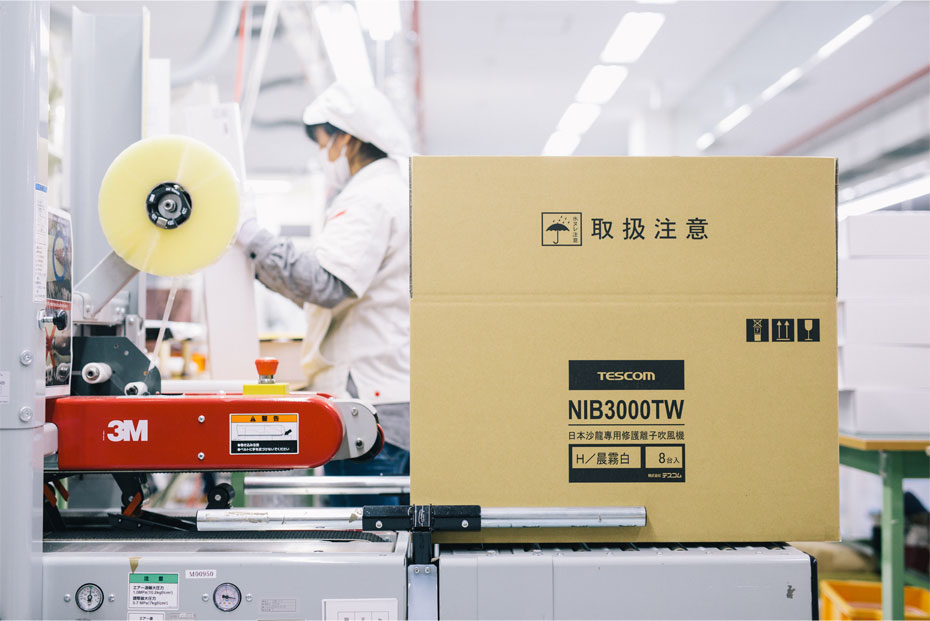
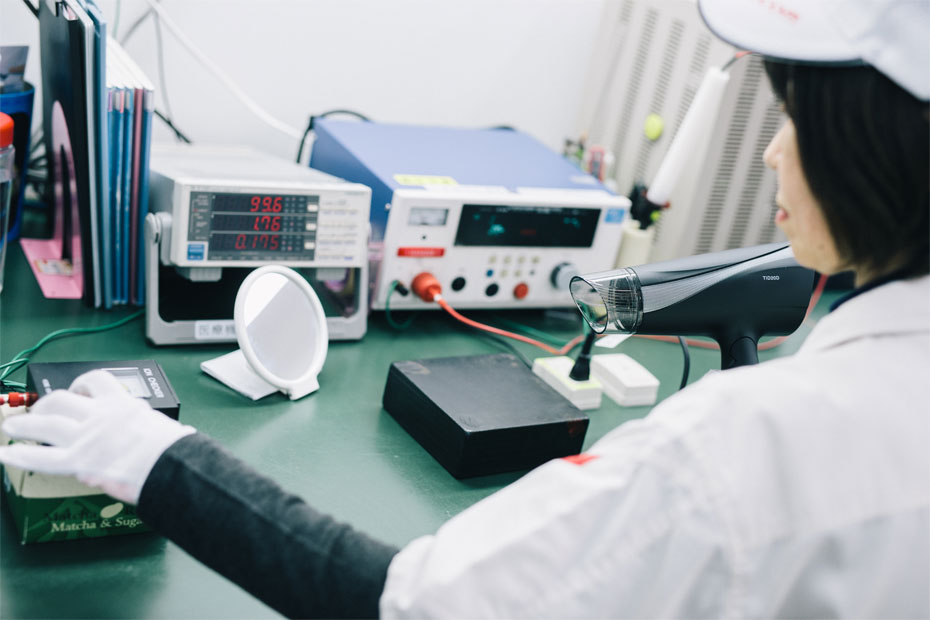
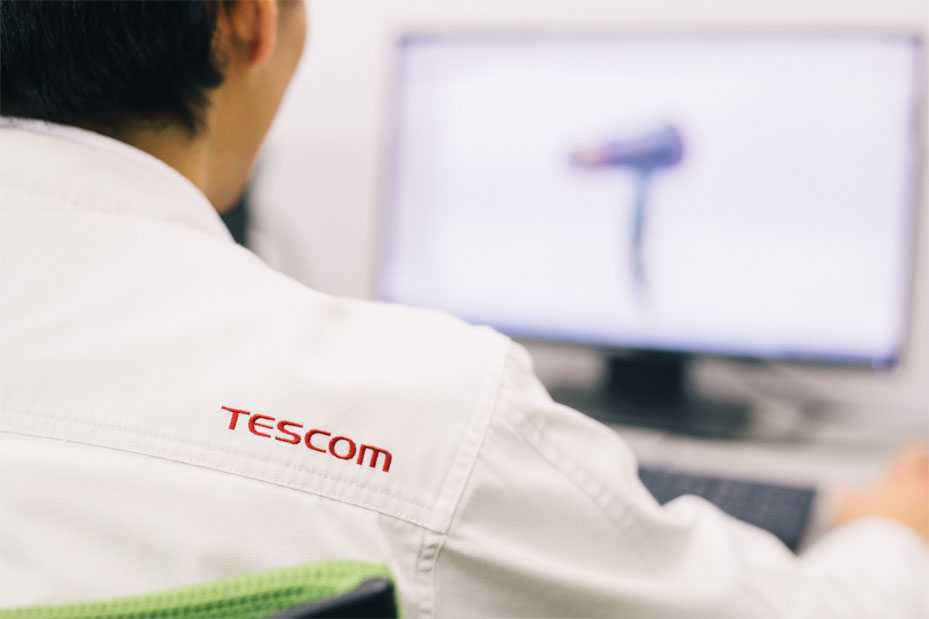
We’d like to take you on a back-stage tour of manufacturing processes to support the craft of Tescom products that are underway at the Matsumoto Factory.
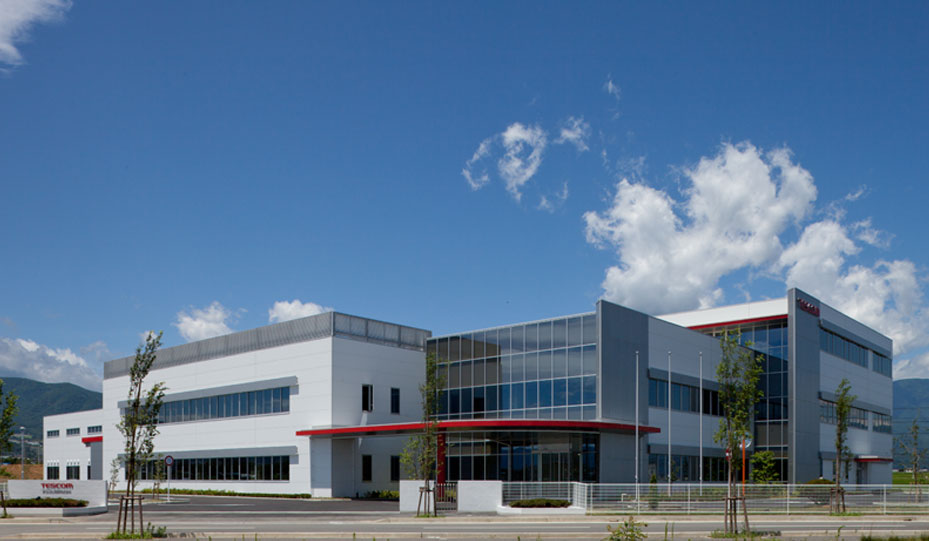
We carry out manufacture from the customer’s point of view. This spirit is something we have carried with us and continued to pass down since our founding.
We moved to our current factory in July, 2013. In this new location, we handle everything from development and manufacture to inspection, repair andcustomer service. Our consumer products are created through technical skill founded in conscientious operations and the sincere efforts of every single one of our employees.
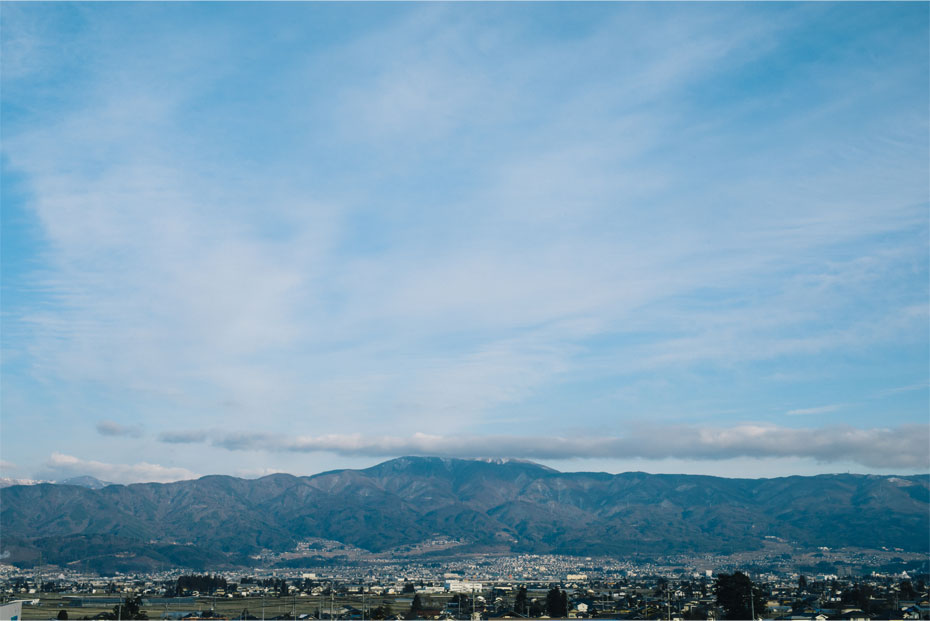
This area is home to Matsumoto Castle, a national treasure, and was once a flourishing castle town. Surrounded by mountains, the climate is dry throughout the year and has many sunny days. The clear air and stable climate seem to support Tescom Denki’s aspiration to “Create Your Beauty”.
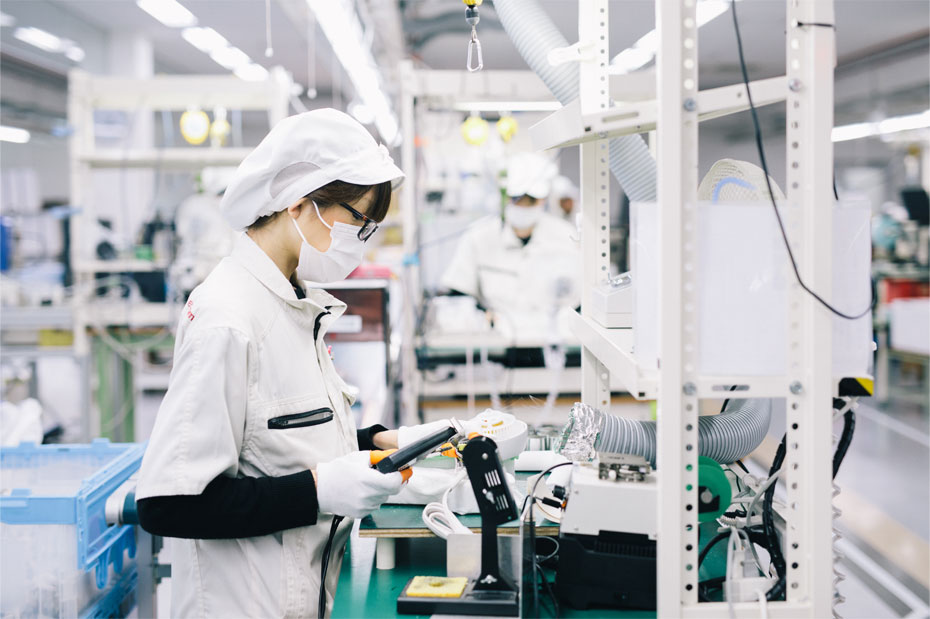
We have spent many years involved in manufacture in this area, so it fills us with pride every time we hear someone mention the kindness and work ethic of the people of the area. In fact, Many of Matsumoto Factory’s diligent work force lives in Matsumoto. From veteran employees all the way down to new hires, everyone here applies our rigorous product quality standards. Even so, you can see a family-like closeness in interactions throughout the factory.
No matter a person’s position in the company, everyone here values teamwork. Much like the climate of the region, the clean, crisp atmosphere here is expressed in the fidelity with which we approach manufacture at Tescom Denki.
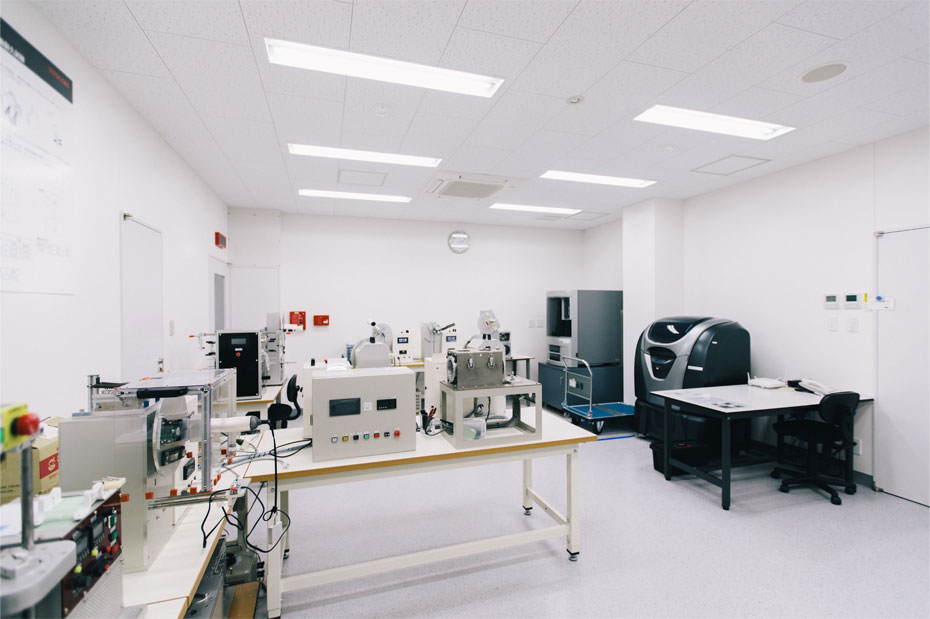
Our diverse products include some that are developed over several years as well as others that undergo minor adjustments for around six months. We continue to invest in experimental facilities and equipment because our focus remains on in-house development. For example, we were an early adopter of 3D printing and other cutting-edge technologies, and this allowed us to massively improve efficiency in mock-ups that had been conventionally made of wood.
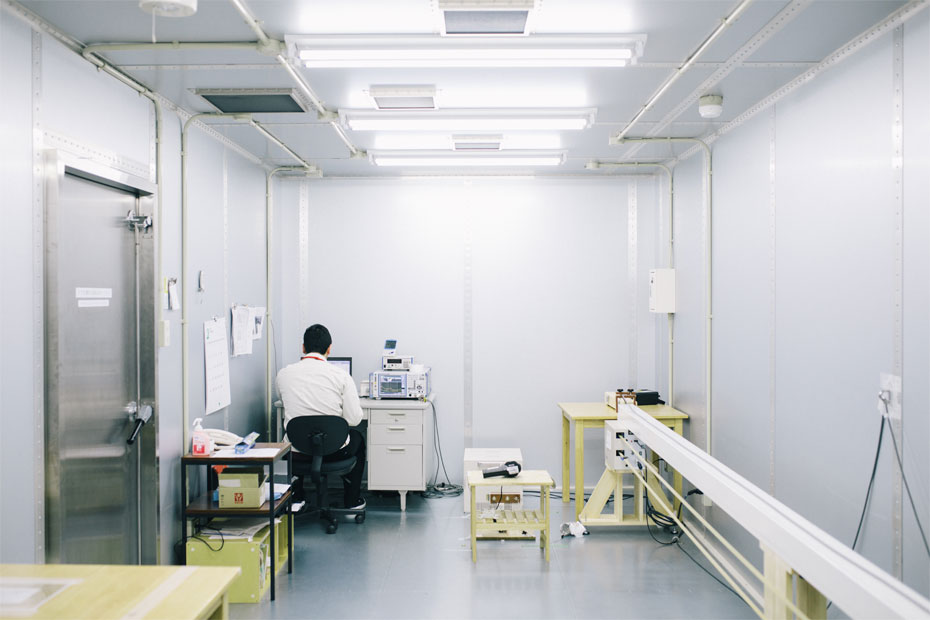
We have established a variety of prototype and equipment spaces, such as our Shield Room, where we measure electromagnetic interference emitted by equipment. Employing a sense of urgency, we repeat trial production and verification to improve the accuracy of our products.
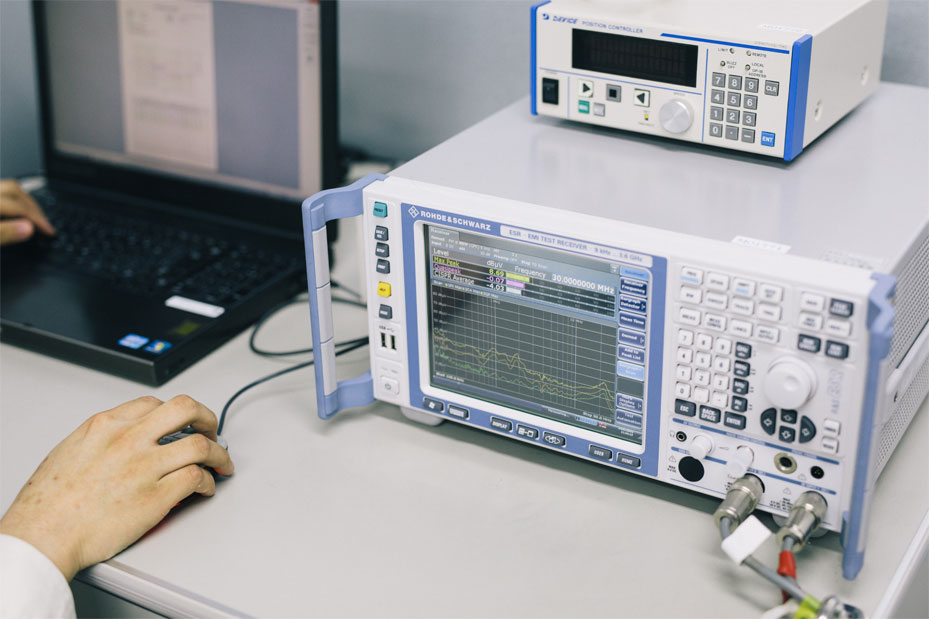
Quality standard bylaws are enforced within Japan, but we apply an even stricter set of standards internally. Our products are used to enable consistent, stable work on professional sites or at home while contributing to ease in your day-to-day life over long years, so we always keep the pursuit of safety at the forefront of our minds.
When you focus on building long-term relationships with your customers, those who are your patrons will raise their voices. From professional salons to your average home, we pay close attention to each and every one of our customers to continue improving our products, and this cycle is the driving force in refinements to Tescom Denki manufacturing processes.
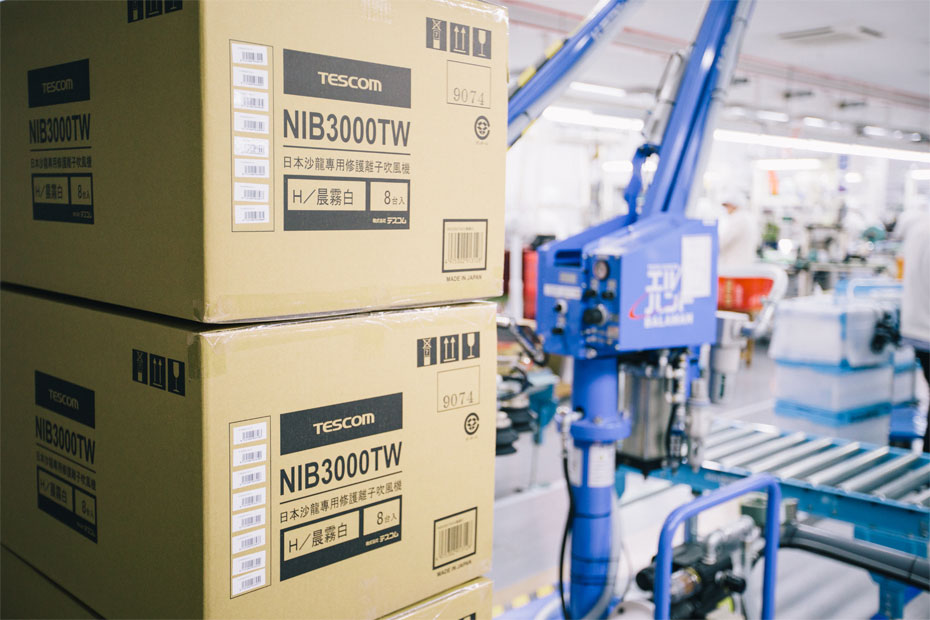
This approach is completely unchanged in the manufacture and inspection of our products for overseas markets. The considerable attention that goes into safety for the Japanese market is incorporated into our overseas products right from the design stages.
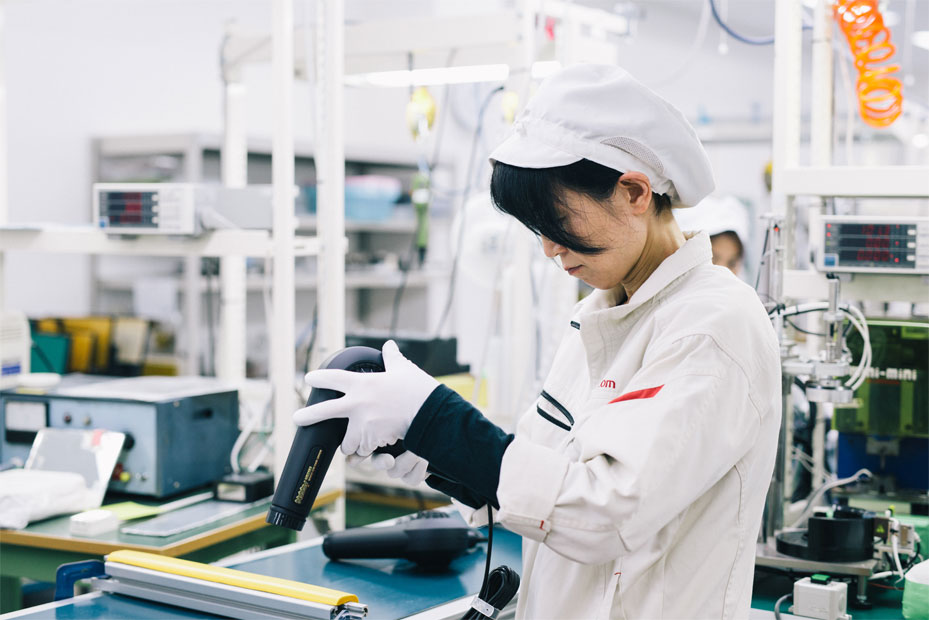
Our hair dryers are a prime example. We emphasize a balance of hot air and air volume for our Japanese products, but volume is more important in tropical zone ASEAN and Middle Eastern climates. Even as we maintain the same electricity consumption and appearance as the products for our base Japanese market, we make adjustments to specifications based on the local region’s individual needs.
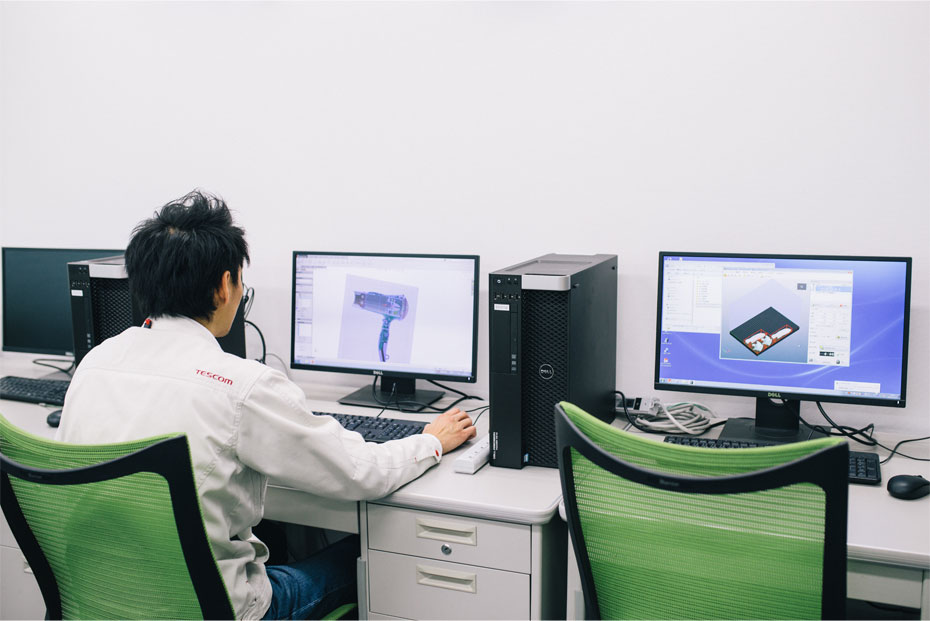
In addition to specifications, we even change content on the packaging for overseas markets. For these markets, we have prepared a more sophisticated design and emphasized online information and in-store explanation.
For each country where we sell our products, we think of every person who picks them up, from sales personnel to users, which is how we created our idea of manufacture from the customer’s point of view.
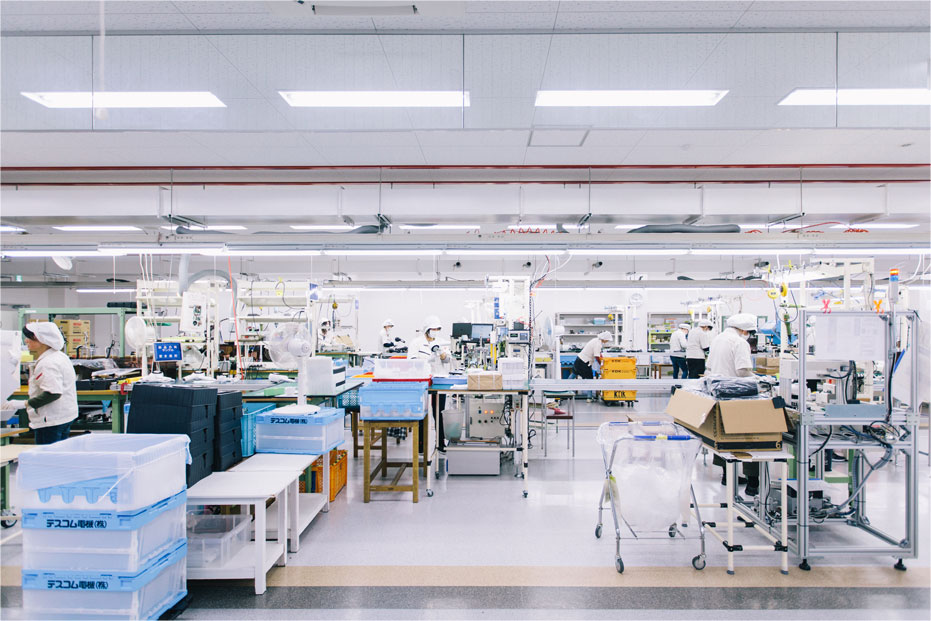
Now, let’s take a look at the actual production line. On the day these pictures were taken, we were working on our Nobby hair dryers which are for professionals.
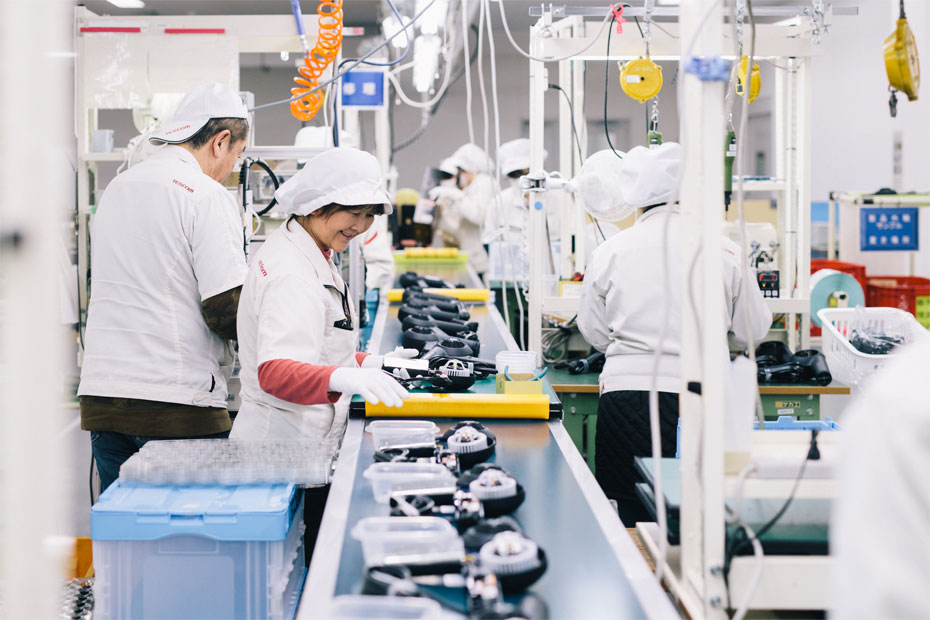
We believe the “3 S’s” are crucial to on-site operation. These are Sort, Set in order and Shine. We make sure cart paths are clearly taped, and empty carts are stored upright, always asking for feedback from those on-site to prevent accidents and improve operation efficiency.
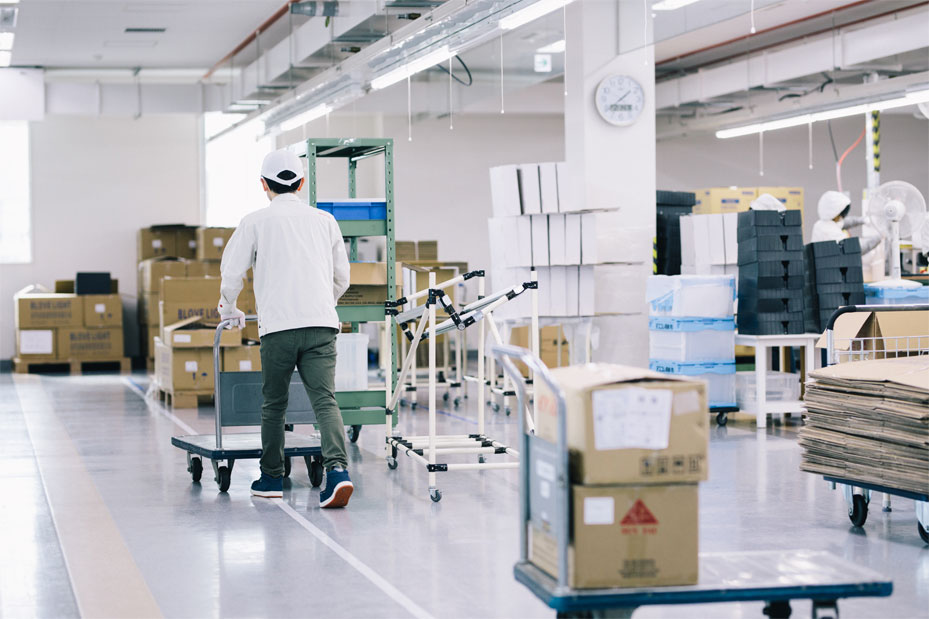
Most of our manufacturing employees live in Matsumoto, the city where the factory is located, so we continue to produce goods that are made in Japan. From new hires to veterans, a wide range of ages and genders are included in our employees. They speak to one another with friendly smiles, but their eyes become serious when they focus their attention on each individual product.
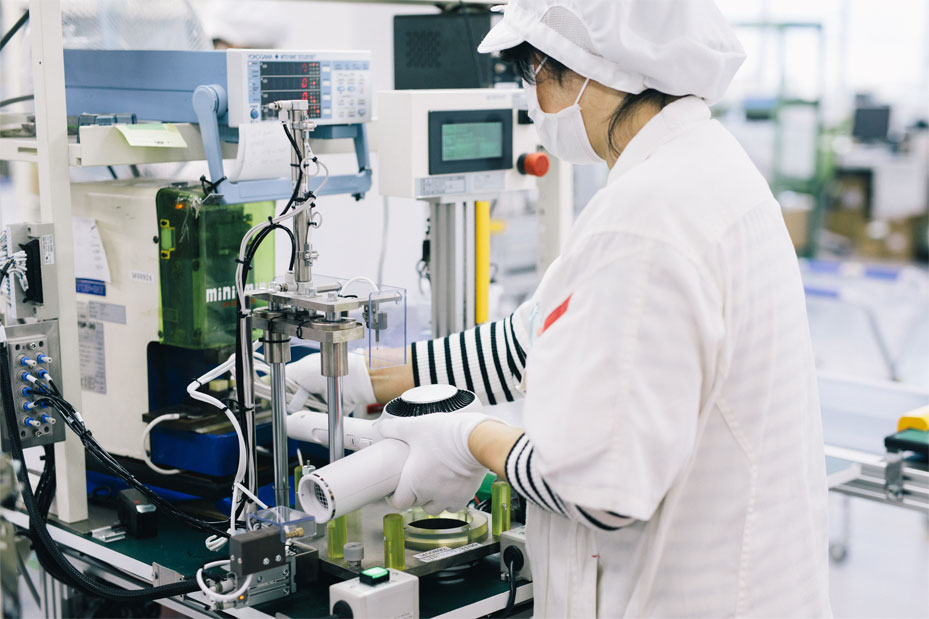
In order to pour the assured quality of Tescom Deki into our products, we utilize a variety of equipment for inspections and also carry out haptics testing for each individual product. We perform checks to ensure no defect is overlooked, in terms of both data and touch.
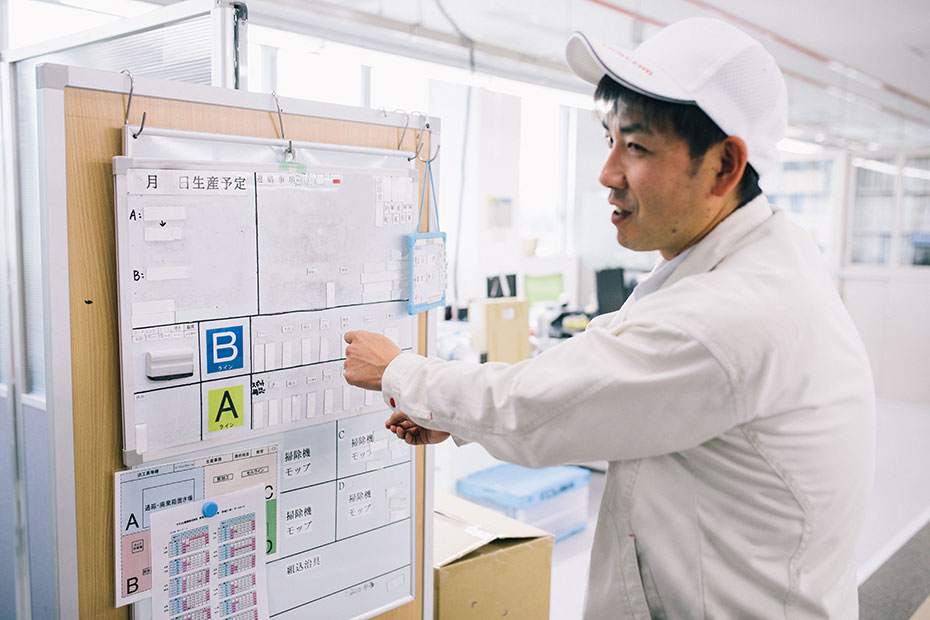
Versatility is required of the workers responsible for the many tasks executed on the Tescom Deki production line. We built a flexible system production that handles a variety of processes, including high-mix/low-volume production, for methodical manufacture that responds to market need.
This allows us to cultivate our workers and ensures that each of them is aware of the following processes, which leads to improvement across the production line.
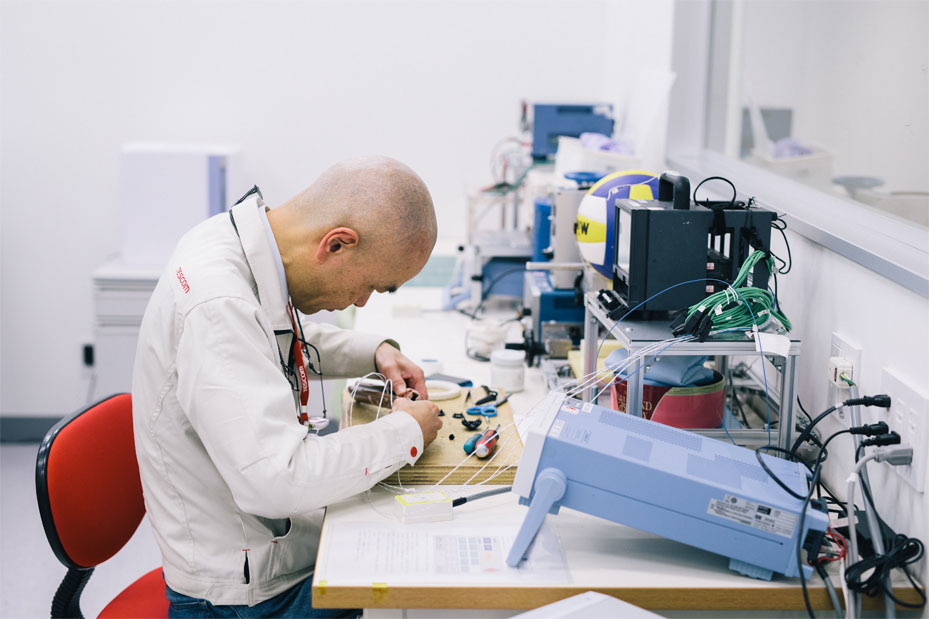
Tescom Denki is working hard on improving quality at development and manufacturing sites as well as in building inspection systems. We employ specialized units for each kind of inspection, such as pre-shipping inspection of every product, prototype inspection for new products, compliance inspections for legal revisions in Japan and abroad as well as exchange shipping for when a defect occurs after sale.
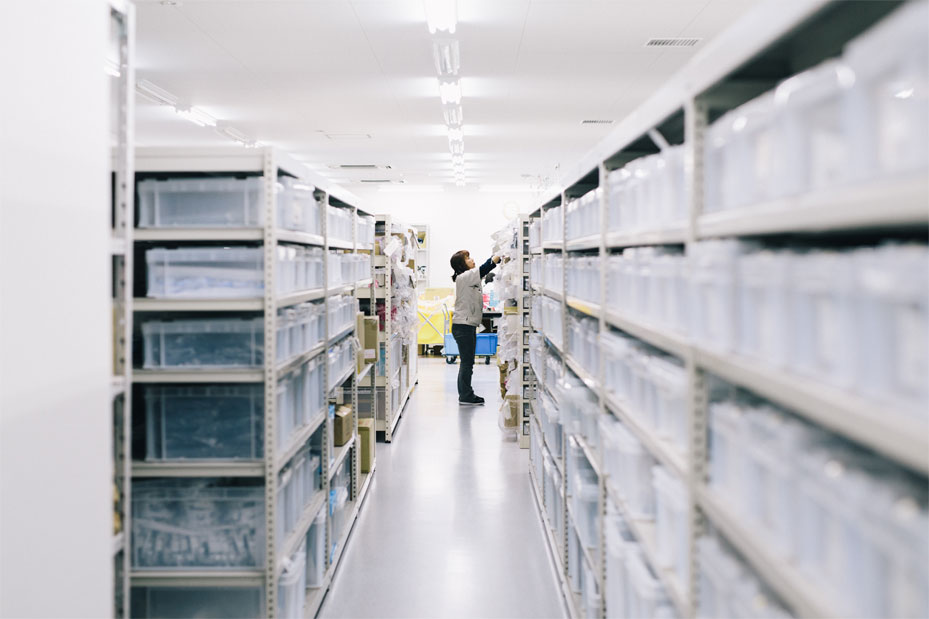
We conduct repeated inspections because we keep the maintenance of quality in mind even for after sale is complete.
If the power cord of a Tescom hair dryer shorts even a single time, that experience affects the customers’ impression of Tescom products and their impression of hair dryer reliability in general.
What’s important is not the quality of a product when it is sold, but for a customer to be able to continue to use the product with confidence. This is why we believe that multiple inspections are required.
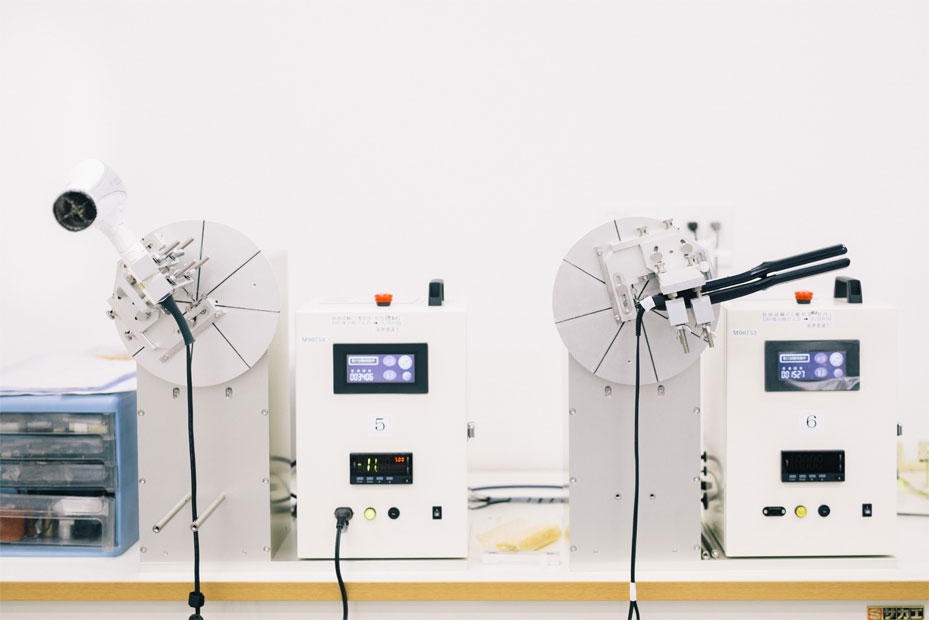
Our belief in inspection has led us to set up specialized equipment in our factory. Our proprietary testing equipment includes cord bending testers, dryer sliding switch endurance testers as well as hair iron spring and plate coating endurance testers. This equipment is used for repeated verification of safety, even when inspecting manufacture of a single product.
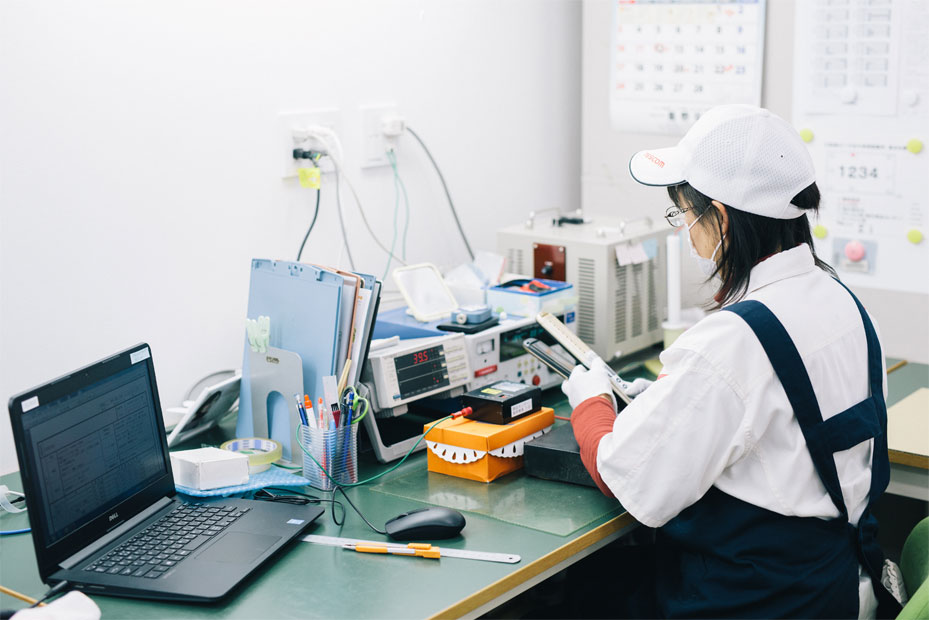
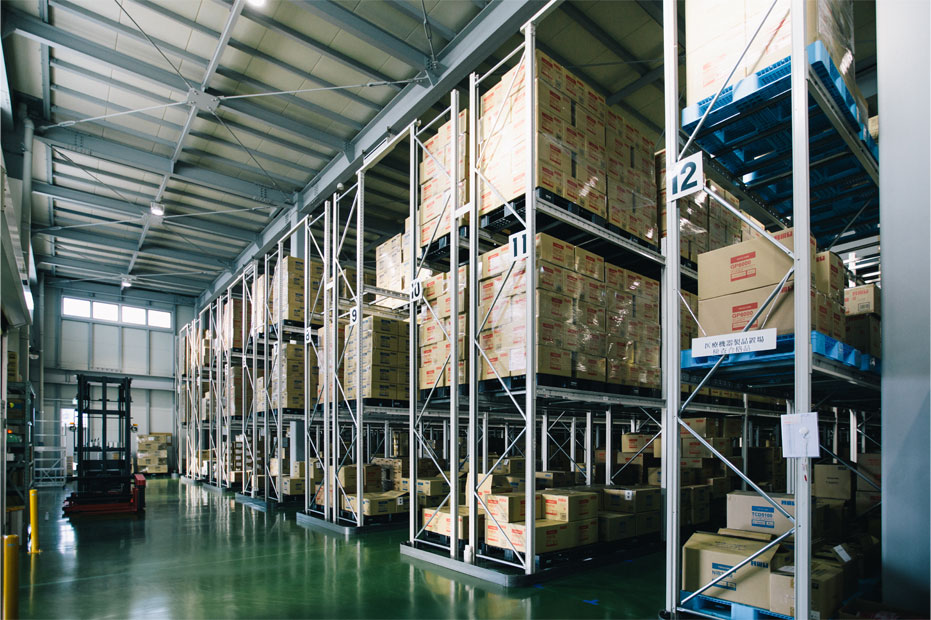
Just because a product is physically manufactured in Japan does not guarantee that the product is of the quality one expects of Japanese craftsmanship. Our overseas partners sometimes tell us that the standards we insist on are quite rigid, but these standards are how we convey our approach to the kind of quality we want to guarantee. Our products are used throughout Japan and across the world to “Create Your Beauty”, and to that end, we continue to seek improvements.
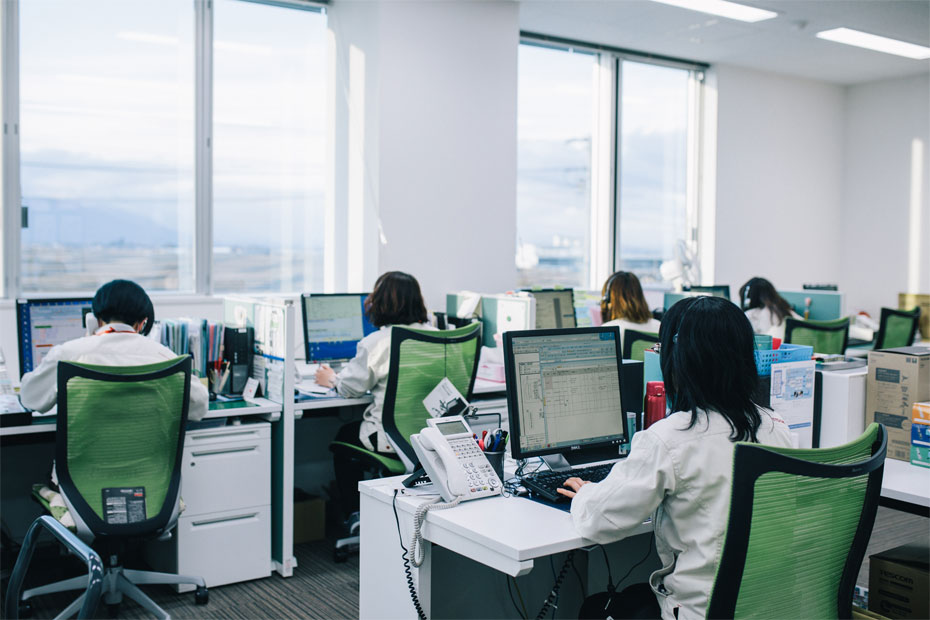
Another feature that sets us apart is customer support(CS) set up inside the Matsumoto Factory. This enables us to promptly implement improvements to the manufacturing site based on customer feedback.
When we receive customer feedback, we also seek out opinions within the company, regarding each opinion we receive as an opportunity to collect ideas that will lead us to the next generation of product and also to registering case study history to ensure prompt customer response.
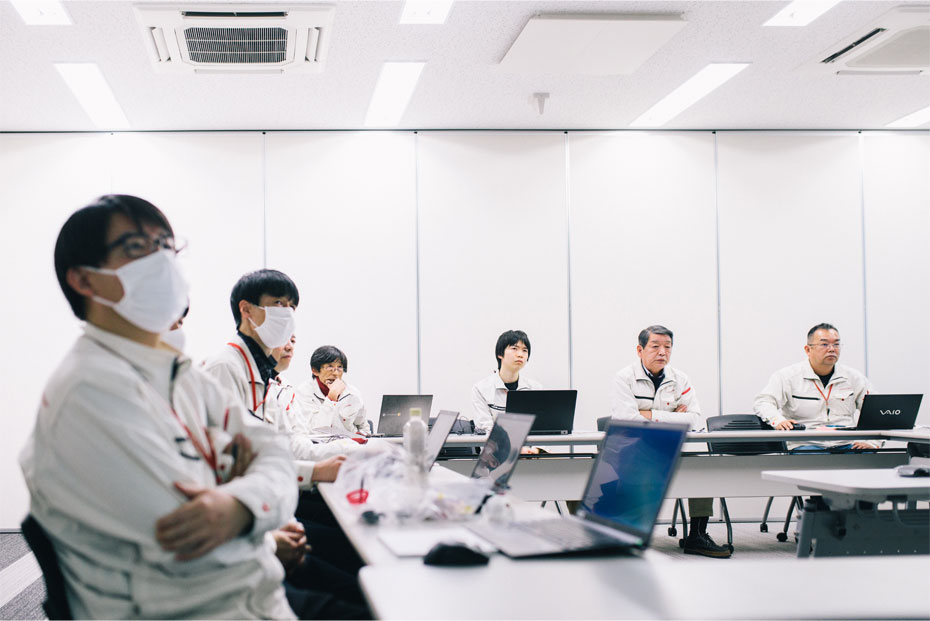
At the “Quality Meeting” held once a month, CS brings together feedback from customers and problems raised by other departments, and discusses improvements to reflect them in the creation of better products.
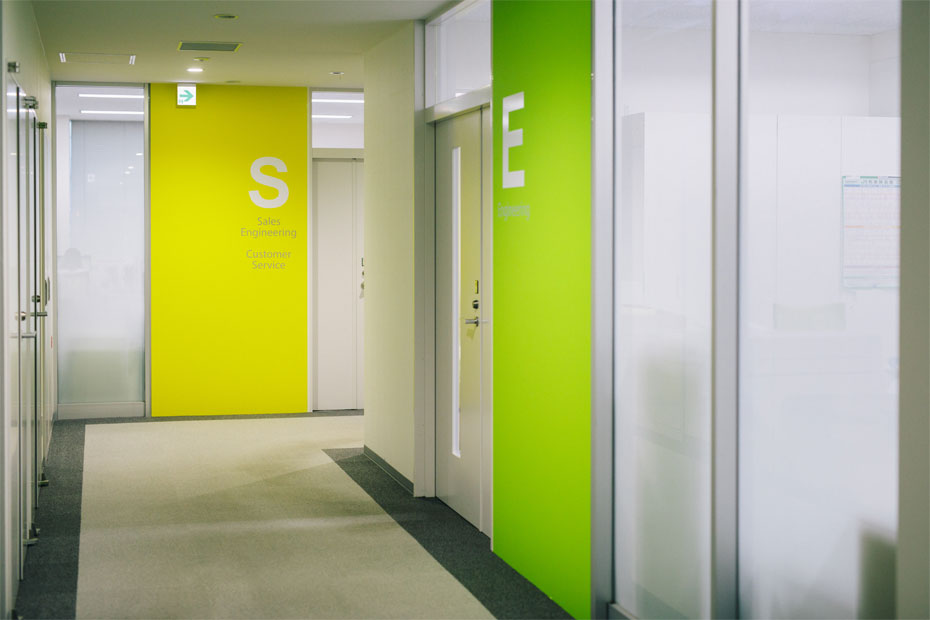
CS and the Product Development division are located the same floor to facilitate for sharing of feedback each other.
Our factory is home to employees of all ages and genders who use our sample products before they enter production so that we can check products in a way that is closer to a user experience. For example, we learned that people found it difficult to open the lid of the mixer when they had artificial nails, which is something that would have been difficult to imagine from the perspectives of manufacturing and technology.
Our employees are both users and creators. By utilizing opinions from both perspectives, we become even better at manufacture from a customer’s point of view.
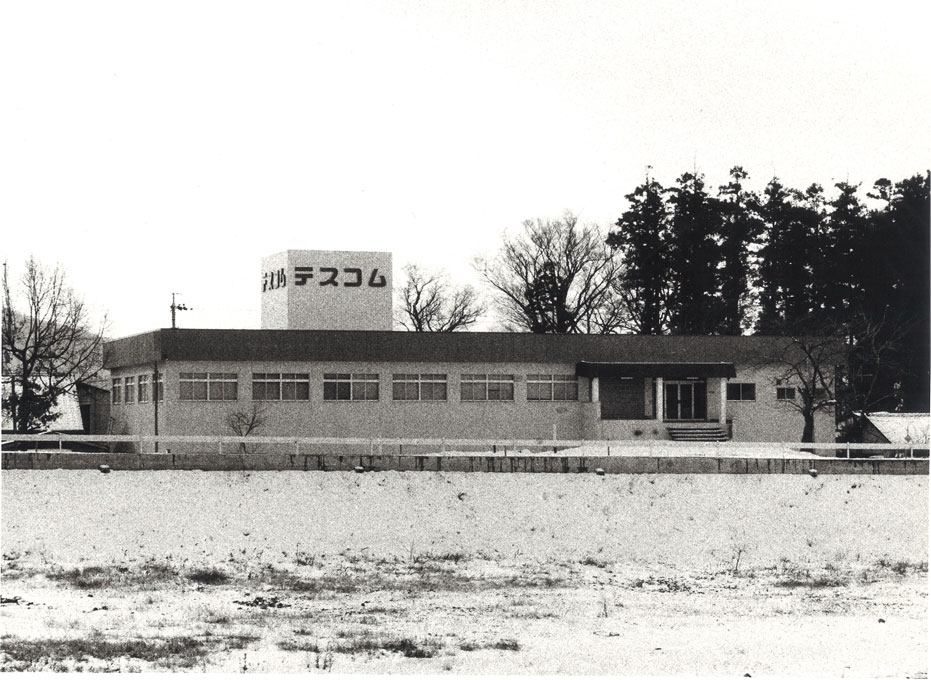
The old Tescom factory. We laid down roots in Nagano, where we continue to manufacture products.
Founder and former chairman, Mikio Kusuno, established the Tokyo Electric Sales Company in October, 1965. He then established the TESCOM brand by abbreviating the company name.
Since those initial steps, we have continued to meet the challenge laid down by our predecessors. We released the world’s first curling hair dryer in 1974. In 1992, we developed and released a hair dryer equipped with a negative ionizer, a technology that has since become standard. Next, in 2013, we introduced the vacuum mixer, a new category of mixer that utilized vacuum technology. In these ways and more, we have continued to create products that reflect customer needs.
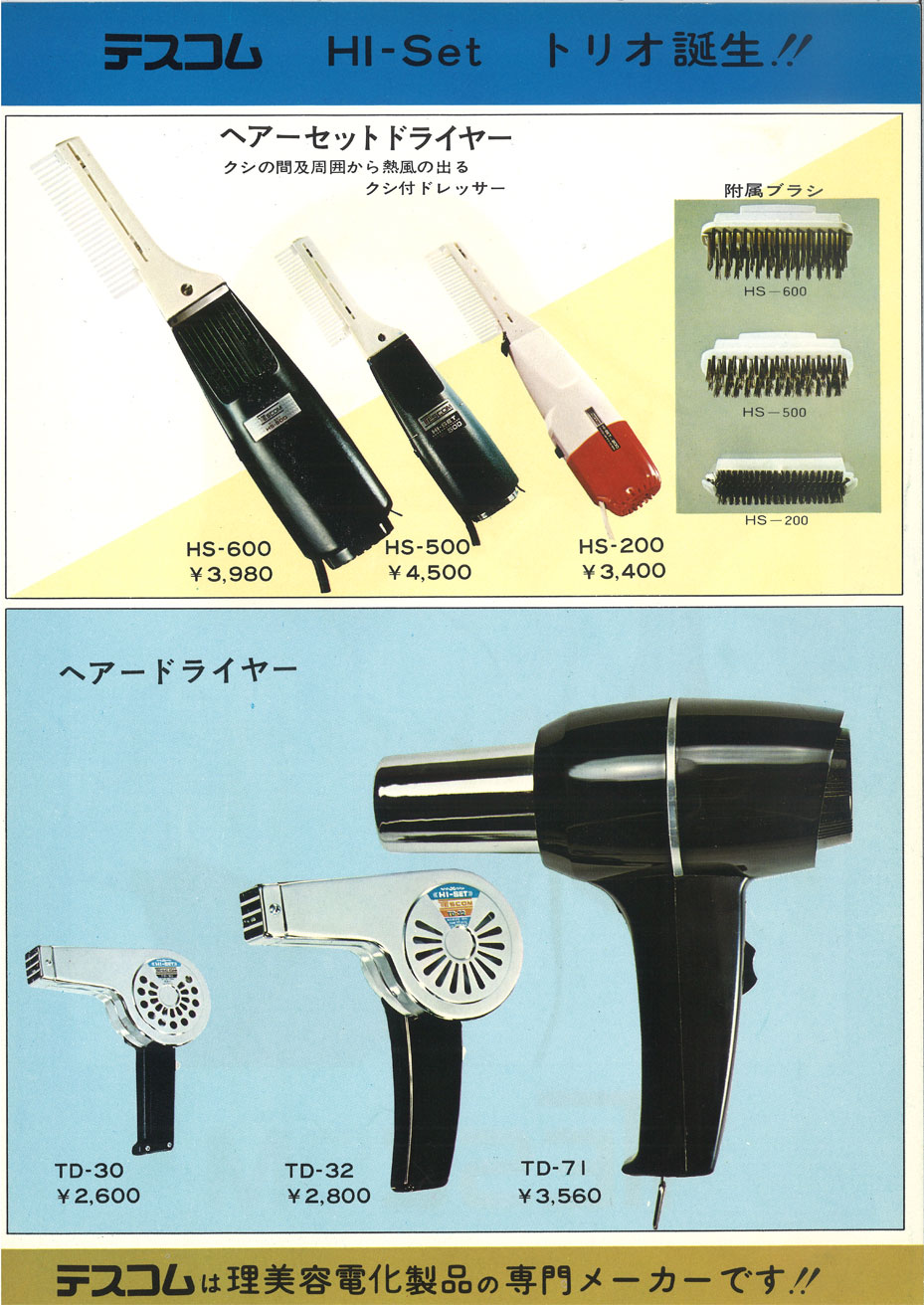
An old product flyer. The HS-200 was released in 1969 and was the first of our products to bear the Tescom brand. We continued development and manufacture from that point, expanding our lineup.
These kinds of results can only be achieved when Tescom Denki’s Three Management Principles are firmly reflected in Matsumoto Plant manufacturing systems.
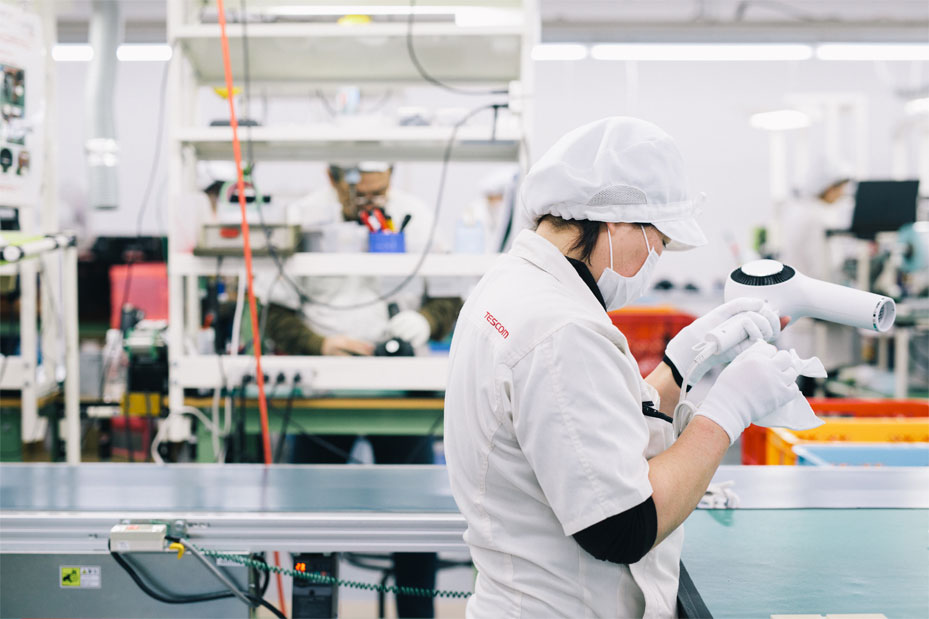
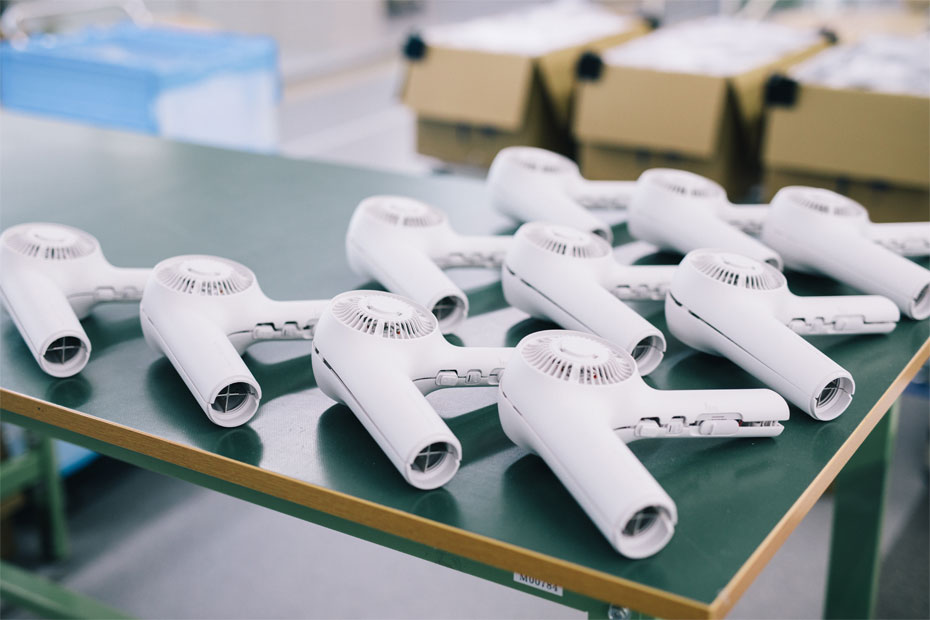
Creating a company that always puts the customer first
Creating products that customers can always rely on
Creating a workforce that customers can always trust
We provide more than home appliances. We create products of quality guaranteed to last long after you purchase them that are designed to bring ease and comfort to your daily life.
Now that we have celebrated half century since our founding, we have set our sights on bringing joy and passion to customers across the globe. This sprit continues to be the core of the Matsumoto Factory.